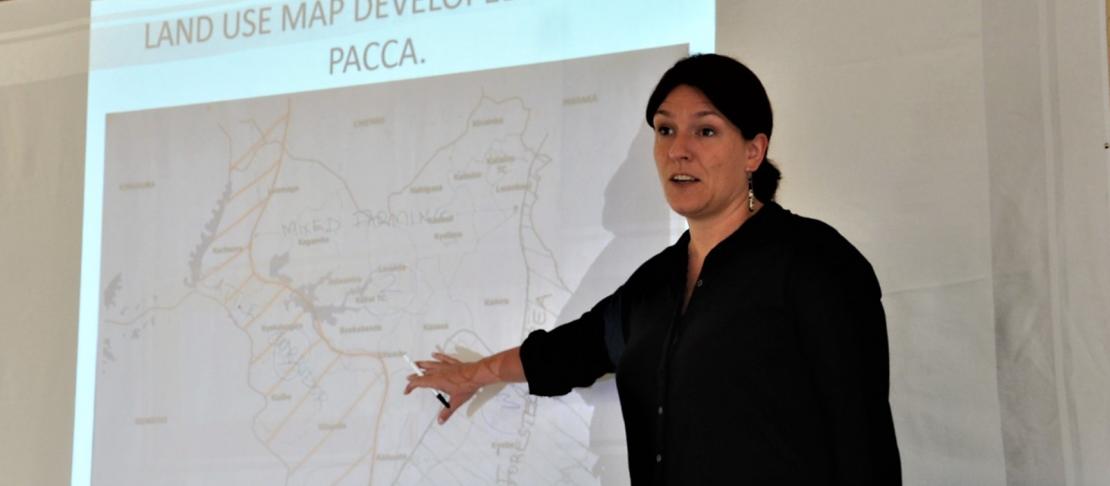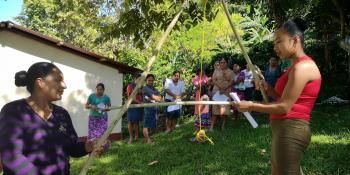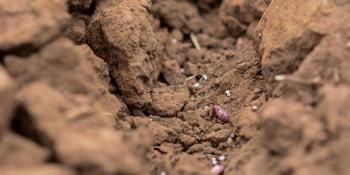Climate-smart agricultural planning at a landscape level in Uganda

Rakai district learning alliance looks beyond climate-smart agriculture as a set of practices and technologies
Taking the lead in Uganda, the Rakai district learning alliance has integrated various sectors and stakeholders at the landscape level to enhance not only synergies between the three interlinked pillars of climate-smart agriculture (CSA) but also sustainable management of ecosystem services.
According to the Food and Agriculture Organization of the United Nations (FAO), the three interlinked pillars of productivity, adaptation, and mitigation are necessary to achieve the principal goal of CSA, which is food security and development.
In developing countries, forests and trees on farms are important carbon sinks and are part of complex rural landscapes, which collectively fulfill the livelihood needs of the rural populace who rely on a variety of ecosystem services such as fuel, food, and water.
Agriculture, however, remains the key driver of deforestation, and the major cause of greenhouse gas (GHG) emissions from the forest sector. Estimates by the United States Environment Protection Agency (EPA) of global GHG emissions from agriculture, forestry, and other land use sectors account for 8 billion metric tons of carbon dioxide (CO2) or a quarter of the 2010 global GHG emissions.
Although there is need to consider interventions at the wider landscape level that increase resilience of forest systems to maintain the flow of ecosystem services and mitigate GHG emissions, learning alliance stakeholders noted that some organizations in the district such as Flora and Fauna International and Caritas have tried to introduce alternative sources of livelihoods in order to reduce pressure on forests and wetlands.
While speaking at the participatory land use mapping of Rakai district, International Institute of Tropical Agriculture (IITA) Uganda Country Representative, Laurence Jassogne, noted that the learning alliance provides space for various actors to discuss the need to show farmers benefits of conserving forests and wetlands, adding that if farmers know their usefulness, then stakeholders in the district can have a bottom-up approach of conserving the environment.
Whenever we talk about climate change it is always about practices but I want us to think about CSA and landscapes,” Jassogne said. “CSA starts at landscape level when we decide that this is where we will have forests and wetlands.”
The meeting was held at Kyotera, on 19 April 2017, and organized by the Rakai district Local Government with support from the CCAFS-funded Policy Action for Climate Change Adaptation (PACCA) project and USAID-funded project on “Development of tools to facilitate Uganda coffee farmers’ adaptation to climate change,” implemented by IITA.
Learning alliance stakeholders mapped the district based on the following land use patterns identified by Rakai district Local Government: livestock and crop production, home gardens and fallow, settlements, forests, fishing, mining, and industrial use.
The participatory land use mapping exercise builds on previous learning alliance efforts to zone Rakai district based on criteria such as vegetation cover, topography and farming systems. Three zones were identified (i.e., cattle corridor, mixed farming and forested area), and participants discussed key zone enterprises, climate change effects on the enterprise, constraints and policy issues. The issues prioritized by the learning alliance stakeholders were further refined and integrated by the District Technical Planning Committee (DTPC) into the five-year district development plans (DDPs).
The participatory land use mapping exercise has not only built the capacity of learning alliance stakeholders to engage in CSA planning at landscape level but has also encouraged synergies between conservation actors to encourage sustainable use of natural resources in the district.
John Francis Okiror works in the communications team at the International Institute for Tropical Agriculture. He supports communications for the IITA-led PACCA project.
Interested in policies and priorities for climate-smart food systems? Subscribe to our newsletter.



